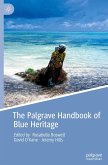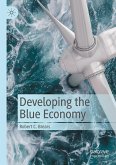This handbook is unique in its consideration of social and cultural contributions to sustainable oceans management. It is also unique in its deconstruction of the hegemonic value attached to the oceans and in its analysis of discourses regarding what national governments in the Global South should prioritise in their oceans management strategy. Offering a historical perspective from the start, the handbook reflects on the confluence of (western) scientific discourse and colonialism, and the impact of this on indigenous conceptions of the oceans and on social identity. With regard to the latter, the authors are mindful of the nationalisation of island territories worldwide and the impact of this process on regional collaboration, cultural exchange and the valuation of the oceans.
Focusing on global examples, the handbook offers a nuanced, region relevant, contemporary conceptualisation of blue heritage, discussing what will be required to achieve an inclusive oceans economy by 2063, the end goal date of the African Union's Agenda 2063. The analysis will be useful to established academics in the field of ocean studies, policymakers and practitioners engaged in research on the ocean economy, as well as graduate scholars in the ocean sciences.
Focusing on global examples, the handbook offers a nuanced, region relevant, contemporary conceptualisation of blue heritage, discussing what will be required to achieve an inclusive oceans economy by 2063, the end goal date of the African Union's Agenda 2063. The analysis will be useful to established academics in the field of ocean studies, policymakers and practitioners engaged in research on the ocean economy, as well as graduate scholars in the ocean sciences.








